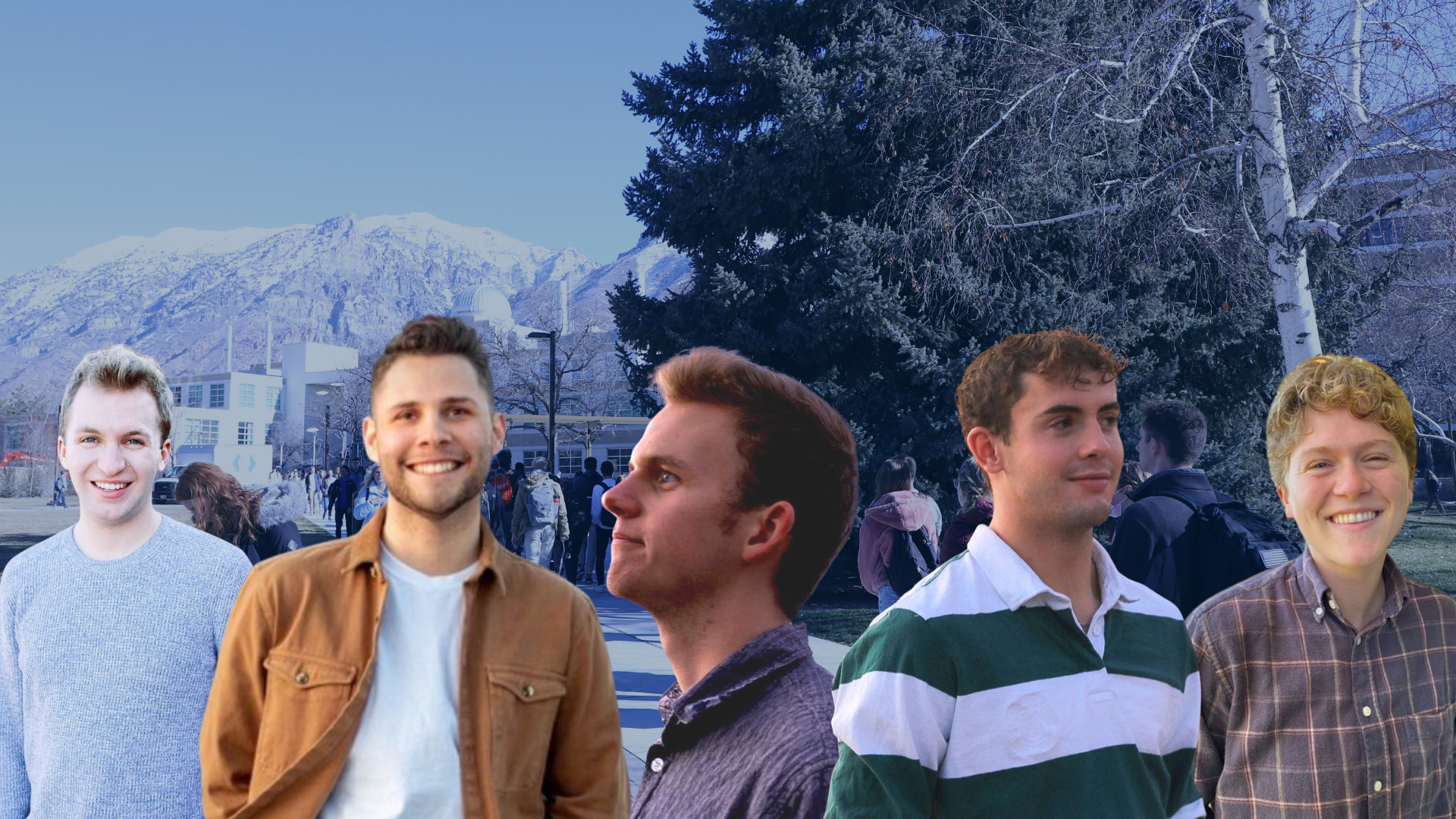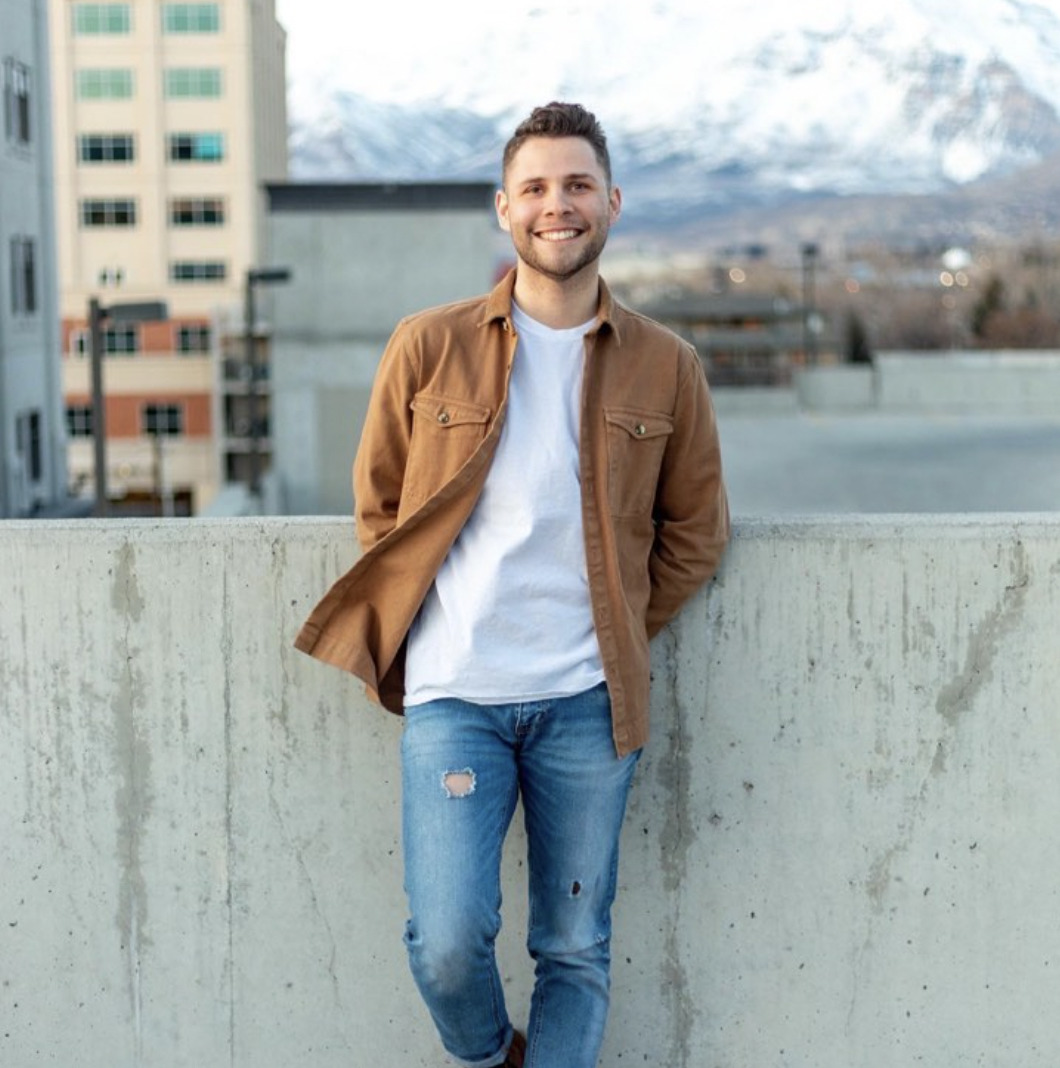
BYU published the results of their second Campus Climate Survey in March and LGBTQ students are discussing the survey’s results and their own sentiment towards the campus climate.
LGBTQ students make up a small portion of the BYU population. From the 13,451 students surveyed, 8% identified as being gay or lesbian, bisexual or of another sexual orientation minority.
While this sample doesn’t speak for the entire student population of more than 36,000, it may provide a better idea of the size of the LGBTQ community at BYU.
BYU’s current Honor Code policy regarding LGBTQ students states “any same-sex romantic behavior is a violation of the principles of the Honor Code.” This update, issued on March 4, 2020, came as a result of changes made to the Honor Code in February 2020 that led to tensions between BYU and the LGBTQ community.
BYU student David Shill is one of the LGBTQ students who hope to promote inclusivity and awareness of their community.
Shill describes his experience before and after coming out as a member of the LGBTQ community as contrasting.
“My experience before coming out was very good,” Shill said. “I went to football games, I participated in all sorts of electives and it was a blast.”
After coming out, things were not quite as simple for Shill. He said his eyes were opened as he stepped into activism and learned from other members of the queer community.
“I became very acquainted with the real experiences of people, to real pain and suffering that is caused by administration and policies here at BYU,” he said.
Shill said those experiences encouraged him to increase advocacy and visibility of the LGBTQ community at BYU. He believes that by increasing visibility, queer students will have a better experience at the university.
“They don’t have to change the doctrine of the Church or anything. They don’t even have to really change any policies. They just have to acknowledge that we exist and provide resources like they do for every other group on campus,” Shill said.
BYU recommends different community resources to LGBTQ students and it also provides the Office of Student Success and Inclusion, which offers LGBTQ and same-sex attraction advisement.
In addition, there are LGBTQ support resources available within different colleges and departments, such as the College of Fine Arts and Communications and the College of Engineering.
“We are hoping to work with administration in order to make this experience a little bit better for queer people,” Shill said.
Campus Climate Survey
In 2021, BYU conducted the second Campus Climate Survey on Sexual Assault (the first survey’s results were released in 2017) in order to assess incidents of sexual misconduct, attitudes toward the Title IX Office, perceptions of campus climate, awareness of resources and suggestions for making BYU a safer place to be.
The survey results also distinguished the perceptions of campus climate specifically among LGBTQ students.
Of the 8% of students that identified as LGBTQ, 50% of them reported not feeling a part of the BYU community to some degree, where only 18% of non-LGBTQ students in the sample reported the same.

In regards to BYU’s campus climate, BYU student Julia Sasine said she often feels a lot of stress and worry about what the university might do or say about LGBTQ students.
“There’s a fear and stress that I feel every single day because it comes out of nowhere,” Sasine said. “It’s really painful and it just destroys the hope that we try to build.”

Despite the heartbreak she experiences, Sasine also said she feels so much surety in her identity.
“I feel so much pride and self-confidence now more than I ever have before, and that I’m capable of dealing with all the other stuff,” Sasine said.
Shill and Sasine said above all, they hope the culture surrounding the acceptance of LGBTQ students will change to be more inclusive. Sasine cited the Understanding Sexuality, Gender, and Allyship organization, Encircle and The OUT Foundation as great community resources for LGBTQ students navigating their time at BYU.
Former BYU student Brett Nielsen said he was often treated differently than he had hoped during his time at BYU.
“It almost feels as if you are a third party, you’re not like everyone else,” Nielsen said. “It’s like you have this weird distinction rather than just being a human who happens to be gay.”
While many LGBTQ students have struggled at BYU, there are also those in the queer community who have had positive experiences at the university.
BYU student Ty Wright said BYU has been a helpful part of figuring out his journey in the LGBTQ community.
“I had a couple experiences coming out to friends that were immensely positive that completely changed my mind on how I expected people to react,” Wright said.
Wright is a member of BYU’s track and field team and found that many of his teammates and friends were supportive and open to his experience.
“Talking with my coach and teammates has just improved my life,” Wright said. “I credit BYU to a lot of positivity in my life.”

Wright also said he was surprised at the size of the LGBTQ community at BYU.
“I was expecting to be the only one, and I wasn’t expecting a lot of people to be in the same situation as I am,” Wright said. “However, as I continue to study here, I meet new people every day that are in the same boat.”
Though Wright said his experience has been overwhelmingly positive, he has had some difficult experiences as well.
“There is a lot of focus on the Church which is great, and with that comes The Family Proclamation,” Wright said, referring to the Church’s document The Family: A Proclamation to the World. “There have been some remarks where I don’t really feel super included, loved or respected.”
Wright clarified that he isn’t trying to change the Church or BYU’s policies.
“I just believe in a mutual respect,” Wright said. “I signed up for the Honor Code when I came to BYU, and I am going to have respect for the Honor Code. Hopefully they can have respect for me.”
Wright explained the most important thing is having an open mind and focusing on respect for each other. “That’s what is going to make the biggest change and that’s what I hope for,” Wright said.
BYU Student Tyler Parra also said he was initially nervous about being involved in the LGBTQ student community at BYU.
“I was nervous because of publicity, like the assumption that I was gay,” Parra said. “So before officially coming out, it was like getting my toes wet.”

Parra also said before embracing that aspect of his identity, he had incorrect assumptions about how the community would affect him.
“I was worried their intention was to take me away from the Church or whatever, so I was hesitant,” Parra said. “But, I’ve found so many good people there. There’s a lot of common experiences that we can bond over, and they are really open to accepting people, LGBTQ or not.”
Parra said his advice to other LGBTQ students is to find a support group of friends within the university.
“I would say find your people, which can be hard, especially if you’re not out or just starting to come out. That’s a scary thing to navigate,” Parra said. “That was the benefit for me. People reached out with so much love and wanted me in their lives.”
For a list of community and campus LGBTQ resources, visit BYU’s College of Family, Home, and Social Sciences website or reach out to individual colleges to learn more about their respective LGBTQ resources.




